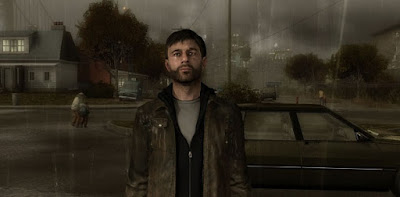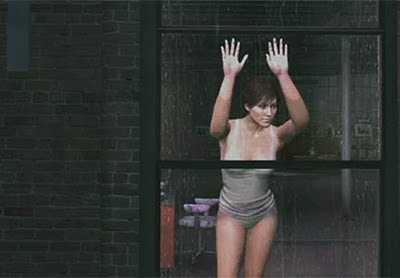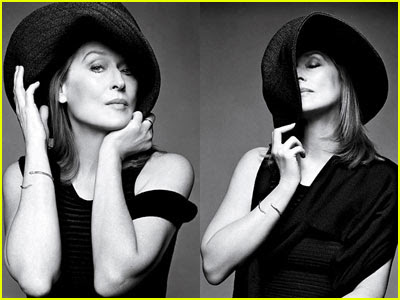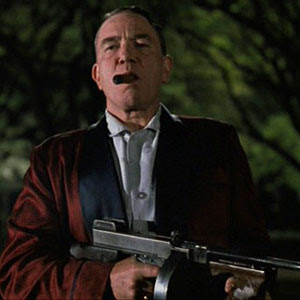
One might not immediately cite 1990 as a particularly notable year in the history of cinema. It was, after all, the year Dances With Wolves dominated the Oscars, with its lush visuals, its masturbatory, self-satisfied PC politics, its massive overlength. Flying under the radar that year were a number of fine pictures, four of which we will be discussing today, since they made 1990 an extremely notable year in the history of the gangster movie.
Usually, confluent trends in cinema are due to societal influence of some sort. The fact that 1990 saw so many different types of gangster movies might—amateur sociology alert—have something to do with the brazen, swaggering, felonious Wall Street culture of the 80s. It might just be that four (actually five if you count Ethan Coen) directors really liked gangster movies. Whatever the cause, the point is four awesome gangster movies came out in 1990.
Like any genre, gangster movies have evolved over time. Raoul Walsh basically invented the genre in 1915 with Regeneration. Shot on location in the Bowery, it's about as close as you can get to seeing what the milieu of Gangs of New York was actually like, as real gangs still prowled the neighborhood. From there, movie gangsters morphed into Paul Muni, then Cagney/Edward G. Robinson, then endless ripoffs of Cagney and Edward G. Robinson, then the paradigm shift/Shakespearean facelift performed by Dr. Francis Coppola, then Scorsese's hyper-realistic, autobiographical take on the genre, still the predominant mode in the gangster picture in 1990. Then Quentin Tarantino taught gangsters how to listen to Madonna and watch The Partridge Family, Guy Ritchie's take was awl roight, innit, then David Chase recast them in a bathrobe in their driveway, lumbering to pick up the morning's Newark Star-Ledger. But let's not get ahead of ourselves, back to 1990.
Our quartet each represents a different approach to the genre, each historically significant:
The Moody Character Piece—State of Grace
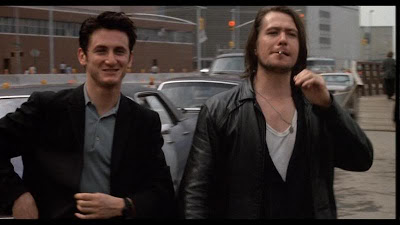
I talked about this one a bit in my St. Patrick's Day post, so rather than be redundant, let's focus on Phil Joanou's direction. The pace is deliberate (read: slow, if you're not in the mood) to give the actors all the time they need to make character choices (“I'm Irish . . . I'm drunk . . . I'm fatalistic . . . I need to brood decoratively . . .”) and the compositions, while serving the same end of not crowding the actors and giving them room to move, instead make the picture feel kind of emotionally neutral (and the lack of urgency in the editing reinforces that feeling of neutrality, and even detachment).
This would all be a critique of Phil Joanou's directing if the performances weren't all so fucking good. Sean Penn overdoes it a bit, as is his custom, but he's still pretty spectacular in this. Gary Oldman of course is Gary Oldman and nothing more need be said; he also overacts, but getting on Gary Oldman for overacting is like getting on water for being wet. Ed Harris, no stranger to overacting himself, keeps it pretty well in check here, and successfully conveys that his character's ruthlessness is due to weakness.
The psychological, Method acting approach to the gangster genre works if your purpose is examining the whys and wherefores behind gangsterism, or in State of Grace's case, the role of the gangster as the last, doomed line of defense against gentrification. The Westies were the most feared gang in New York, but they were no match for yuppies.
The Auteursploitation Picture—King of New York

King of New York is a decent companion piece to State of Grace, as both are “decline and fall of the gangster empire” narratives, and both have a similarly grim, moderato pace. One area in which King of New York is the clear superior, though, is in the overacting competition.
Remember, I'm not saying “overacting” as an insult, and remember also, King of New York stars Christopher Walken, perhaps the most flamboyantly strange actor ever seen on the silver screen. As drug kingpin Frank White, Walken is at his apex. Frank White is the king of New York, to the point where in a wonderful bit of irony, just about every black rapper from New York has, at some point or other since 1990, declared himself to be Frank White.
King of New York starts with Frank White's release from prison. Frank returns to a city where his lieutenant, Larry (pre-Laurence) Fishburne, is informed “nobody even talks to you goddamn motherfucking coños anymore.” Larry, aided by chemist Steve Buscemi and that one weird guy who just shouts shit in a coked-up rage all the time, rebut this assertion with a hail of gunfire and steal the gentleman's drugs.
The gangsters in King of New York always have half-dressed beautiful women lounging around, and the way you can tell Walken's the boss of bosses is that his half-dressed women are more beautiful than the other gangsters'. His headquarters, where all his women lounge around, is the Plaza hotel, another conspicuous sign that Walken is cooler than everyone else.
Walken attempts to diversify into the legitimate world, where he hobnobs with Pete Hamill (playing himself) and politicians, but the cops (led by a scenery chewing David Caruso and his earnest young protegé Wesley Snipes) are dead set on putting Walken back in jail, as they regard his release to be a crime in itself.
However he might crave acceptance in the straight world, Walken still has a drug empire to reconquer, which requires some doomed-from-the-start negotiations with a deliciously reptilian Chinese guy who sits around watching Expressionist horror movies with his (far too clothed for true gangster credibility) women and his henchmen. When business falls apart after the Chinese guy tells him “I didn't realize how fucking crazy you really are,” Walken and company are forced to resort to machine guns, which maneuver eradicates the Chinatown contingent.
David Caruso and the cops eventually decide that the only way to beat Walken is at his own game (which is to say, a machine gun battle), although Victor Argo (in the movie's only understated performance, and maybe its best) demurs and refuses to be party to such methods. Caruso and entourage succeed in killing a whole bunch of Walken's guys, including Larry Fishburne, though it costs poor Wesley Snipes his life, as well as a fresh-faced, recently married rookie's. Walken gets his retribution by drive-by blasting David Caruso at Wesley's funeral, leaving Victor Argo to arrest Walken, who mortally wounds Victor Argo, though he himself is mortally wounded by Victor Argo. Walken dies quietly in a cab in Times Square.
Director Abel Ferrara is very much an auteur, whose major theme is Catholic guilt, with subthemes sin and retribution, and because of his personal preoccupations, his bad men never get away with what they've done; they've sinned and ultimately must repent. So, although Walken is the King of New York, the king must die. Long live the king. And by God, long live King of New York. Few movies are as unrelentingly grim and violent, but even fewer are as fascinatingly badass. Anyone Biggie Smalls was willing to defer to in the badass department (the titular king, Frank White) is a force to be fucking reckoned with.
The Classicist Approach—Miller's Crossing

Of the movies in discussion today, the first that can unironically be branded a masterpiece is Miller's Crossing (also discussed briefly on St. Paddy's). Joel and Ethan Coen, in their nearly three-decade career, have made a half-dozen of the finest motion pictures of their generation, and to date have only directed one bad movie (Intolerable Cruelty, where they had to make chicken salad out of someone else's chickenshit script). Their finest, I submit—even better than Fargo, Raising Arizona, Barton Fink, The Big Lebowski, or No Country For Old Men—is Miller's Crossing.
Borrowing from Dashiell Hammett, Damon Runyon, and Grand Guignol, Miller's Crossing is an incredibly stylized, intricately constructed, unabashedly unpleasant work of genius. Gabriel Byrne stars as Tom Reagan, loyal right hand to political boss (read: gangster) Albert Finney, who is having trouble with “ethical” Jon Polito and his right hand, the terrifying Eddie Dane (J.E. Freeman). Despite his loyalty, Gabriel Byrne is still fucking Albert Finney's woman, the hard-as-nails Marcia Gay Harden, whose brother, Jon Turturro, is number one on Jon Polito's to-kill list because “ethically, he's a little shaky” (an elegant understatement from an inelegant man).
So, in order to protect Albert Finney's interests, Gabriel Byrne has to disclose his affair with Marcia Gay Harden, thus prompting his exile from Albert Finney's inner circle (said exile accomplished by Albert Finney beating the shit out of him in public and throwing him down a flight of stairs), which leads to Gabriel Byrne having to go work for Jon Polito, whereupon Gabriel Byrne subtly subverts Jon Polito's organization from within, leading Jon Polito to kill Eddie Dane, after which John Turturro kills Jon Polito and Gabriel Byrne kills John Turturro, unfortunately ruining his chances at ever getting Marcia Gay Harden back but nonetheless being forgiven by Albert Finney. Exhale.
As compelling as the twisty, double-cross-laden plot is, and as gorgeous as the camerawork is (the Coens have always collaborated with the best DP's, first Barry Sonnenfeld then Roger Deakins and Emmanuel Lubezki), what makes Miller's Crossing so special is the dialogue. Basically, just read this whole page.
Of course, the scene with Albert Finney, the tommy gun, the burning house, and “Danny Boy” is the stuff of standing ovations. The fact that one of the greatest scenes ever in movies isn't even overwhelmingly the best scene in the movie is a testament to how fucking amazing Miller's Crossing is. The fact that an even better gangster movie was released in the same year is a reason to regard that other gangster movie with awe.
The Real—Goodfellas
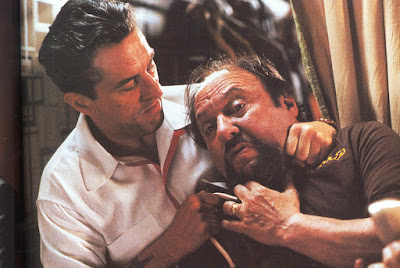
“As far back as I can remember, I've always wanted to be a gangster.” --Henry Hill
“I grew up with the gangsters and the priests . . . now, as a director, I'm both.” --Martin Scorsese
It all seems so effortless. It looks like it's really happening. It's arguably the best picture in one of the most storied careers in cinema, Martin Scorsese's. Based on the memoir Wise Guy by real-life gangster Henry Hill, Goodfellas (the name change was due to there being a TV show at the time called Wiseguy, which you should see if you haven't) covers thirty years in The Life, following Henry Hill from wide-eyed kid parking cars at a Mob cabstand to high-flying coke dealer to state's witness testifying against all his friends.
By this point, practically every scene in Goodfellas has entered the realm of myth, so recapping is unnecessary. As awesome as the whole movie is, two scenes stand out. They're Scorsese at his very best, and Scorsese at his best is exciting and important:
(1) The steadicam shot when Henry takes Karen to the Copa for the first time. We start outside, see the huge fuckin line, and Karen starts to say something about “wow, we're going to have to wait” only to have Henry tell her, we don't have to wait, it's better this way, as he hustles her through the service entrance. Now, the obvious reason why this shot is awesome is that it's all in one take, with dozens of people choreographed perfectly even before we get into the main room of the Copa and they produce a table from outta nowhere and all that. But the less obvious reason is that this shot is the ENTIRE MOVIE in microcosm: Henry the gangster is taking his girl out on a date, showing her the glamor of the gangster's life, but in so doing has to drag her through the less-than-glamorous underbelly of the club where you get a glimpse of where, metaphorically speaking, the sausages are made. The fact that you don't really notice that until the thirtieth time you see the movie leaves you feeling it's all a bit of an adventure, and that Ray Liotta famously bashes himself in the nuts about two-thirds of the way through the shot but gamely keeps going further deepens the metaphor. Now, my favorite part of the whole thing, the very end, when Henry and Karen are sitting down, and a waiter brings over a bottle saying, “This is from Mr. Tony over there,” and there's that pan over to a table full of friendly, gesticulating gangsters. Martin Scorsese is so cool he can make a camera move funny. That shit has me dying, every time.
(2) Billy Batts' coming-home party. This one isn't about the flashy camerawork, this is just the fucking apex of acting and directing. Joe Pesci, as Tommy, comes into Henry's bar with a girlfriend, not realizing that Billy Batts is in there with some henchmen. Tommy doesn't like Billy Batts. Billy Batts reminds Tommy, in a very demeaning way, that he used to be a shoeshine boy, all the while pretending that he's being friendly. He is, however, reminding a lesser gangster, one who has not been “made,” who the alpha greaseball is. Now. By this point in the movie we've had it firmly established for us that Joe Pesci is motherfucking crazy as a fucking shithouse rat. While he may rationally give a fuck that Billy Batts is a made man and he isn't, when Billy Batts suicidally keeps fucking with him, Joe Pesci's rational side gradually dissipates, until the coup de grace: “NOW GO HOME AND GET YOUR FUCKIN' SHINEBOX.” Joe Pesci slams the glass he's holding to the ground and goes nuts; Henry and Jimmy only just get him out of the bar before he launches himself at Billy's whole henchmen coterie.
Of course, that's not the end of it. Joe Pesci comes back, and he and De Niro jump on Billy. Character revelation: Joe Pesci is sloppy and all over the place as he beats Billy to death, whereas De Niro calmly and methodically stomps the life out of the guy (a concise portrait of psychopath vs. sociopath; beats the shit outta the DSM-IV, which has the added disadvantage of not being scored to Donovan). The best part about the ending of the scene, where they roll the “dead” Billy Batts in tablecloths and schlep him out to Henry's car, is that it means the scene with Scorsese's mom is coming up next.
That scene, where they're all just sitting around eating dinner at like 4 o'clock in the morning, and Catherine Scorsese shows the boys this amazing, stark painting she did, and De Niro remarks “[he] looks like someone we know,” and starts laughing, because the guy in the painting looks vaguely like Billy Batts, who's in their trunk, right outside . . .
There are so many classic bits in this movie: the “do you think I'm funny?” sequence (which was actually written and directed by Pesci), the whole saga of shooting Spider in the foot and Spider committing suicide by telling Tommy to go fuck himself (later homaged on The Sopranos before it started to suck when Michael Imperioli, who played Spider, goes into a bakery and shoots some guy in the foot, telling him “It happens!”), “Don't let the sauce stick!”, Kevin Corrigan's perfectly calibrated “thaw fuuuuck atta he” (translation: “Get the fuck out of here”) when Ray Liotta tells him about the helicopters, etc etc etc.
And, on a personal note, my 7th grade basketball coach is in the movie, playing himself, as the guy toward the end who haggles with Henry and Karen over the witness protection program thing. When I was in high school, one of his sons made “High School athlete of the week” in the New York Post, and the opening of the piece went something like, “Occasionally, the phone will ring. Sean will pick it up and the voice on the other end of the line will say, 'It's Wilt Chamberlain.' When that happens, Sean calls for his father: 'Dad! It's Henry Hill!'” Priceless stuff, that.
It's pretty fucking hard to conceive of a movie as good as Goodfellas. Of the top 5 or so movies of all time, Goodfellas is probably the most entertaining of the lot, and certainly has the best soundtrack. It's a beautiful movie about something ugly, the gangster and the priest in perfect balance. And it taught me the word “fucko.” For that alone, Goodfellas is a classic.
Now, astute cineastes will probably point out “Hey, there was a fifth notable gangster movie released in 1990.” And I, being generous, will indulge you and agree:
The Misfire—The Godfather, Part III
The whole meme about Sofia Coppola ruining this is a little overblown. The other problems (no Robert Duvall, and giving all his screen time to Diane Keaton, historically the weakest link in the saga, casting people like George Hamilton and Eli Wallach, who while both awesome do not fucking belong here, the central story—about power struggles in the Vatican—being so dense that you need footnotes to figure out who's how) overshadow poor Sofia, who was fated to be a director, anyway. When you have a movie where you're supposed to consider Andy Garcia ascending to the throne as a harbinger of doom, you have a very problematic movie.
In fairly short order after 1990, Tarantino would remake the gangster movie in his own image, leaving the quartet and change I mentioned today as the swan song of an era of crime cinema. It's surprising how not dated any of the four are (well, not so much Goodfellas, movies that good don't get dated), how even though they belong to the past, they're still in a language we understand in the present. We could stand, in this self-conscious (post)modern age, to take a page out of these pictures' book (if the metaphor police call, you never saw me) and remember what made them great. And hey, a 20th anniversary is always a good excuse to watch something.
